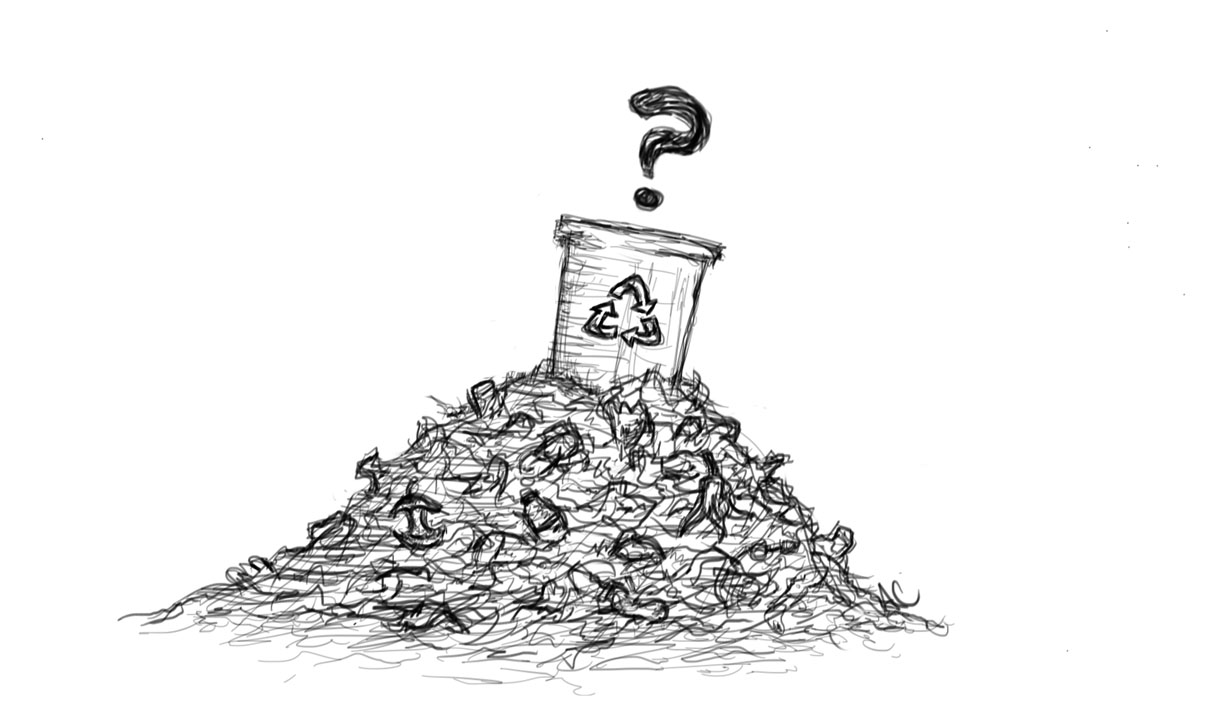
Students, faculty need to work together to promote sustainability on campus
With a new semester in full swing, students expect changes around campus — perhaps more than what they’re actually seeing.
Not to undermine those fancy new charging stations, but when it comes to campus-wide sustainability, USD continues to lag behind.
Even after proposals for increased recycling facilities and energy-efficient options, these have yet to become reality.
While we can delay acting on sustainability initiatives indefinitely, their impact on the community and environment won’t wait. If we want to be serious about creating a healthy future, we need to begin taking action toward greater sustainability now.
We’ve been following USD’s process toward campus-wide recycling since last year. Environmental consulting firm Verdis Group has conducted an evaluation on USD’s recycling efforts, but the results of that evaluation have yet to be released and the pilot recycling program is still in the works.

The only goal at this point is starting the pilot program for recycling, but the goals of this program have no deadline. Many logistics, resources and planning go into implementing just the pilot program, but beyond that, the future of the program is up in the air. The majority of staff, faculty and students remain in the dark on how and when sustainability efforts will begin.
When it comes to sustainability, widespread collaboration is key. Every single person on campus should be on the same page to create enduring change. With thousands of trash cans located in dorms and across campus, a recycling initiative could alter our current lifestyle dramatically. But we cannot rely on a single person or group to make a difference. We cannot let our individual inconveniences of sorting out our waste deter us from necessary change.
According to Meghann Jarchow, an assistant professor of sustainability at USD and a member of the President’s Committee on Sustainability, one of the options USD has been looking at for a pilot recycling program would include having a common recycling area on each floor that faculty members and students would be able to drop their recyclables into.
When a survey was sent out to faculty and students last semester asking them about recycling efforts and if they’d be willing to use a common recycling area, however, most respondents said they weren’t interested.
Because recycling isn’t widespread, many of us are unfamiliar with how to make recycling a habit. Along with a new system promoting recycling, we need more education in leading and maintaining a sustainable life.
According to the Association for the Advancement of Sustainability in Higher Education, if the more than 18 million American college students graduate with the skills to help societies develop more sustainably, higher education will play a key role in leading the entire world in a new direction.
The need for sustainability isn’t going away any time soon — problems like climate change, loss of biodiversity and limited water resources are here to stay.
As students, we have a heavy burden on our shoulders to support a healthy environment for future generations. We’re the ones growing up in an age where potential global ruin is in our midst.
According to NexGen Climate, the millennial generation will lose nearly $8.8 trillion in lifetime income because of climate change. As millennials, it’s time we make our voices heard on the issues impacting our futures. The actions from one college campus could easily spark a movement and inspire others.
Plans for a pilot program are a great place to start, but as the saying goes, actions speak louder than words. We can read and speak all we want about the effects of climate change, but until we do something, it will only get worse.
We’ve already heard it from Al Gore, Bill Nye, even the Lorax. Now it’s our job to turn those words into a sustainable reality, starting at USD.
